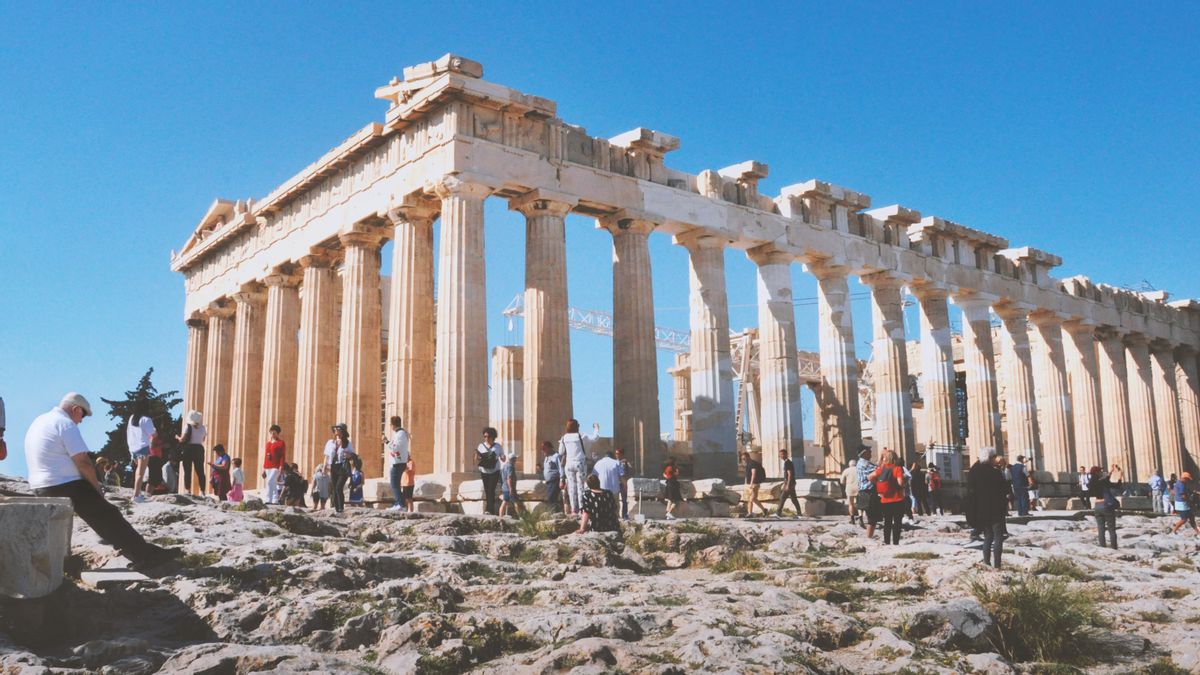JAKARTA - Greece closed Acropolis, the most visited ancient site, when the country was hit again by heat waves which caused temperatures of up to 38 degrees Celsius (100.4°F).
Like many countries in Europe, Greece has repeatedly experienced high temperatures that interfere with daily activities since June.
Hundreds of forest fires occurred after the warmest winter ever recorded, which scientists attribute to global climate change.
Schools and tourist sites have been closed, outdoor working hours are limited, and six tourists died in June during a prolonged period of hot weather. This highlights the dangers of exposure as temperatures approach or above 40°C (104°F).
SEE ALSO:
Acropolis, in the rocky hill area overlooking Athens, attracts hundreds of thousands of tourists every year, and is closed from noon to 17.00.
"This is not normal around the world? What is happening, they say, so by the end of this 50 years we will no longer be able to keep up with climate change," said Andrea Warren, 36, from Canada, as other tourists descend the hill behind him.
"We are experiencing great climate change... and that is why the country must adapt, by always paying attention to the protection of its people and especially its workers," said Manpower Minister Niki Kerameus.
The Hellenic Red Cross crew distributed water bottles to tourists some of them wearing hats waiting to enter the Acropolis site before it closed.
The Greek meteorological agency estimates that extreme hot conditions will continue until the weekend, prompting authorities to limit outdoor work during the peak hours of hot weather this week.
The English, Chinese, Japanese, Arabic, and French versions are automatically generated by the AI. So there may still be inaccuracies in translating, please always see Indonesian as our main language. (system supported by DigitalSiber.id)


















